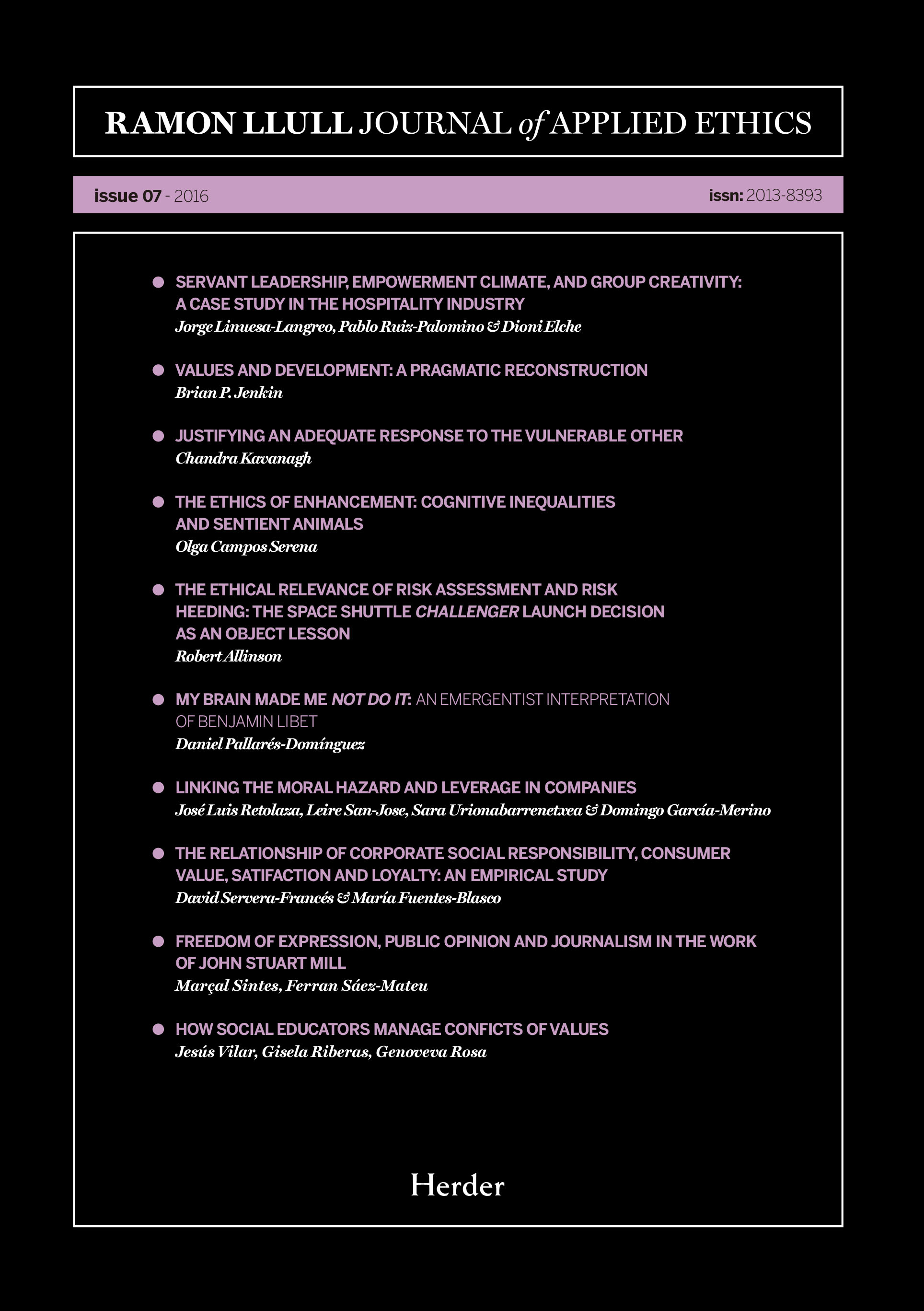Linking the Moral Hazard and Leverage in Companies
Article Sidebar

Main Article Content
José Luis Retolaza
Leire San-José
Sara Urionabarrenetxea
Domingo García-Merino
This paper is intended to fill the gap in the literature on moral hazard amongst companies. It seeks to explore the moral hazard for companies by linking the leverage range with the risk involuntarily assumed by third parties. The paper takes the distinctive approach of trying to understand the nature of the moral hazard affected not only through asymmetries but also through lack of resources in companies. The paper also seeks to establish the importance of companies' moral hazard from an ethical perspective and proposes an index –the moral hazard index– which provides the option of reducing risk when managers make (moral) decisions on leverage and equity levels; subsequently the assumed risk is controlled. An extreme case is set out of companies that have such high leverage that they survive with negative equity (sometimes also known as zombie companies). In such cases the assumption of risk by third parties is undeniable. The paper explains the problem and shows the concern regarding company leverage. Although the index is still only theoretical, it offers opportunities for improvement to determine its applications and utility. Moral decisions are expected to be taken with regard to the structure of the capital of companies in order to reduce the risk assumed by third parties.
Paraules clau
stakeholder, assumed risk, ethic, value, responsibility, loss, decision-making, strategy, trust
Article Details
Com citar
Retolaza, José Luis et al. “Linking the Moral Hazard and Leverage in Companies”. Ramon Llull Journal of Applied Ethics, no. 7, pp. 143-66, https://raco.cat/index.php/rljae/article/view/310546.
Articles més llegits del mateix autor/a
- Oliver Vasquez, Leire San-Jose, Ethics in Fintech through users’ confidence: Determinants that affect trust , Ramon Llull Journal of Applied Ethics: Núm. 13 (2022): Issue 13
- Leire Alcañiz, Ricardo Aguado, Jose Luís Retolaza, Integral Human Development as a challenge for corporations: an analysis from the Catholic Social Teaching perspective , Ramon Llull Journal of Applied Ethics: Núm. 14 (2023): Issue 14